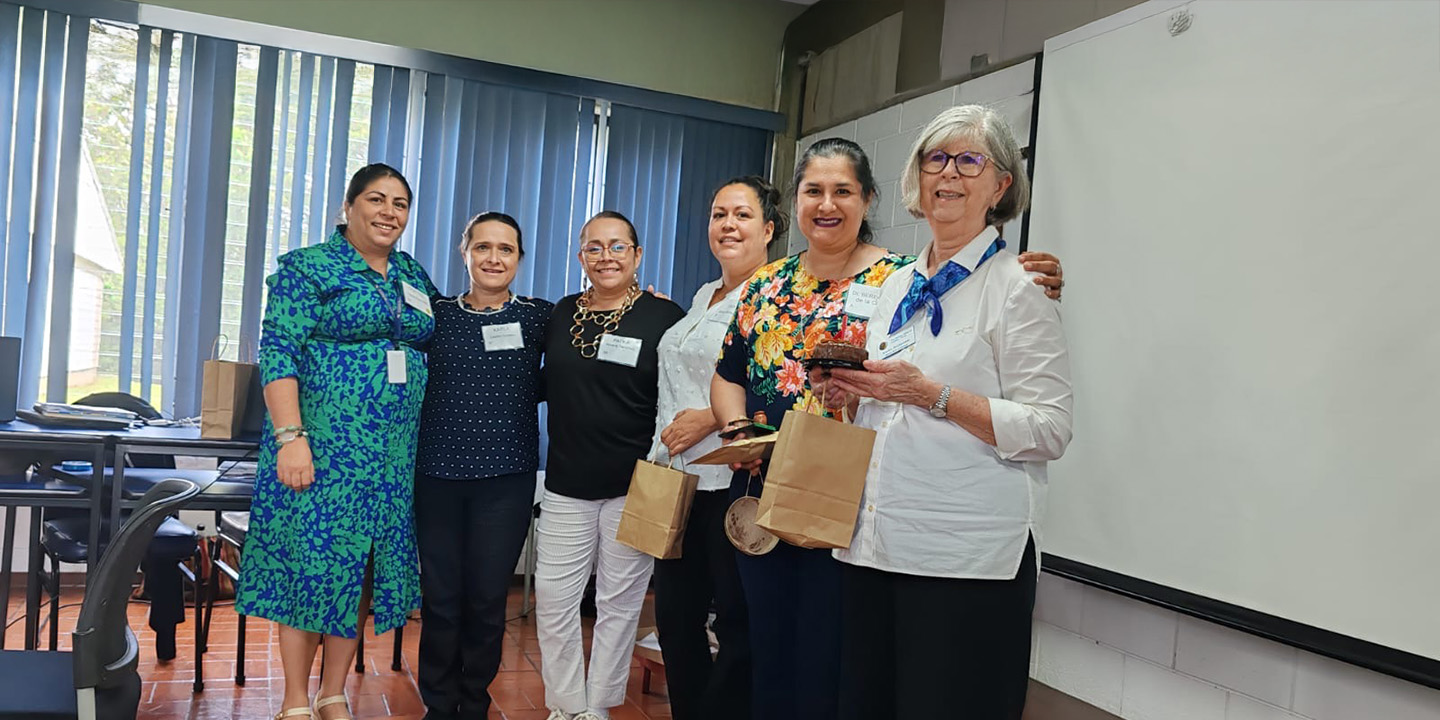Dr. Berenice de la Cruz, assistant professor and program coordinator of Applied Behavior Analysis (ABA) at Texas A&M University–San Antonio, recently returned from Costa Rica, where she led a groundbreaking professional development workshop on autism and ABA for educators and specialists.
The three-day training, held in Turrialba and organized by Costa Rica’s Ministry of Public Education, marked the country’s first ministry-sponsored workshop focused on ABA. About 40 participants—including classroom teachers and special education specialists—gathered to learn how evidence-based strategies can better support students with autism across the nation’s schools.

“This was a really historic opportunity,” de la Cruz said. “Not only were we providing training to educators, but we were also helping the Ministry think about how to adapt and expand this knowledge throughout the country.”
De la Cruz explained that the Costa Rican Ministry of Education launched an autism initiative aimed at strengthening inclusive education services. To bring ABA expertise into the effort, ministry officials reached out to the Texas Association for Behavior Analysis (TxABA), where de la Cruz serves as president. Through that connection, de la Cruz and several colleagues were invited to develop and deliver the workshop in Spanish.
Alongside de la Cruz, the sessions were supported by Cindy Ramos Reidinger, a board-certified behavior analyst at a local ABA clinic that serves as one of A&M-San Antonio's practicum sites, as well as Jennifer Hines, an adjunct faculty member who resides in Costa Rica and managed logistics.
“The ministry wanted this training to help educators,” de la Cruz said. “The participants can then share what they’ve learned with colleagues, families and communities across the country. That’s what makes this initiative so impactful.”
During the sessions, de la Cruz and her team introduced foundational knowledge about autism, then guided participants through core ABA principles. ABA is a scientific approach to understanding behavior and learning. In the context of autism, ABA strategies are widely recognized as effective in teaching communication, social skills and adaptive behaviors.
 At times, participants expressed hesitation as the training challenged their existing practices. “On the second day, we had to address some resistance,” de la Cruz said. “It wasn’t that what they were doing was wrong, but ABA requires a different framework for thinking about behavior. We emphasized that these tools are meant to enhance—not replace—their current work.”
At times, participants expressed hesitation as the training challenged their existing practices. “On the second day, we had to address some resistance,” de la Cruz said. “It wasn’t that what they were doing was wrong, but ABA requires a different framework for thinking about behavior. We emphasized that these tools are meant to enhance—not replace—their current work.”
By the final day, she said, the participating educators began to see how ABA concepts could be woven into Costa Rica’s education model.
“The culture in Costa Rica is different from what we’re used to in Mexico or the U.S.,” de la Cruz noted. “We invited participants to guide us on how to make the material relevant to their schools and communities, and we would revise our programs based on the feedback we received. This is about building something sustainable and responsive to the local culture.”
De la Cruz, who joined A&M–San Antonio in 2020, has been a driving force in expanding the University’s offerings in behavior analysis. She is the inaugural program coordinator for the undergraduate and graduate ABA programs, launched in 2022 in the College of Education and Human Development.
Her trip to Costa Rica reflects both the University’s mission of community engagement and her personal dedication to supporting individuals with autism. She said the experience highlighted the challenges—and opportunities—of supporting students with autism.
“The people of Costa Rica were incredibly welcoming,” she said. “We left feeling confident that ABA can be integrated into their educational system in a meaningful way.”